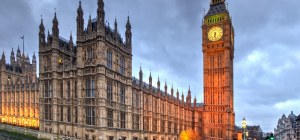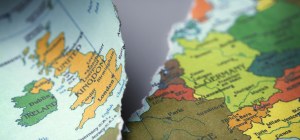205: Brexit and public affairs: What are organisations up to? (Part 2)
Blog written by Claus Lønborg, CEO, Copenhagen Capacity
www.copcap.com
Copenhagen Capacity (CopCap) is the official organisation for investment promotion and economic development in Greater Copenhagen.
There is little doubt that Brexit is dominating the political agenda. But it is not always clear how organisations are coping with the undoubted challenges and what action they are taking, particularly when thinking about relations between the UK and EU, as well as their cities and regions, post-Brexit.
With this in mind, we thought it would be useful to ask a number of organisations – EU and UK-based – to share their experiences in a series of periodic guest posts. We hope you find them useful.
We are really pleased that Claus Lønborg, CEO, Copenhagen Capacity, has written the second guest blog in this series.
What are the main issues that Danish businesses are raising with you about Brexit?
Danish companies are concerned with what will happen to their market access when Britain leaves the EU. The UK is and has always been a large market and a basis for developing knowhow for Danish companies. Also, the companies are concerned with what will happen to their Danish employees presently working in the UK subsidiaries.
What are the opportunities for Denmark and Copenhagen as you see them?
Denmark has a lot to offer British companies – especially within business sectors such as medicine and biotech, IT, cleantech and finance. Furthermore, Copenhagen offers a central location for companies wanting to do business within the EU, especially in the Baltic Sea Region. To add to this: access to a highly qualified, English-speaking workforce and some of Europe’s best conditions for running a business, Copenhagen is an interesting option for British-based companies who want a continued access to the EU market in the future.
Do you think there will be changes in the ways British and Danish businesses deal with each other after Brexit?
Unfortunately, we expect Brexit to change the way Denmark and Britain deal with each other when it comes to: market access, legal conditions, customs bureaucracy etc. It will probably become more expensive and not as smooth as it is today. Therefore, it can influence the ease and profitability of doing business with each other for Danish and British based companies.
Are you worried about the UK no longer being open to Danish businesses?
Danish and British companies have a long tradition of doing business in each other’s countries and with each other under different and changing conditions. Therefore, Britain will remain an interesting market even after Brexit, and British companies will remain attractive partners for Danish businesses. Also, the strong British knowledge within e.g. biomedicine, IT and finance will still be highly valuable for Danish companies to tap into. Most likely it will, however, be more difficult for Danish and British businesses to cooperate and take advantage of each other in the future.
Britain will want to maintain inward investment after Brexit, what can it do to further build a relationship with Danish businesses?
The market possibilities, knowledge and culture in Britain will continue to be highly attractive for Danish businesses. So, if the ease of doing business across the border decline after Brexit, we could actually see more Danish investments into Britain to maintain local market access and access to knowledge.
Furthermore, Danish and British companies must also work on a bilateral basis to maintain the existing relations and counteract the consequences of financial and operational borders that Brexit may create.









